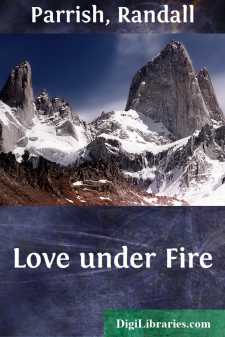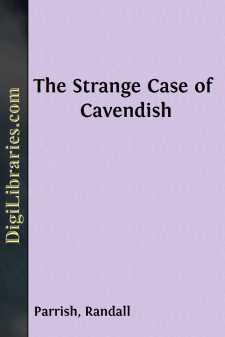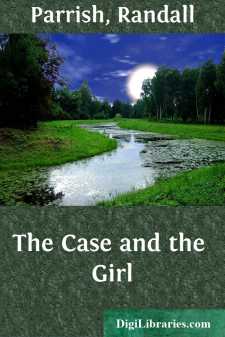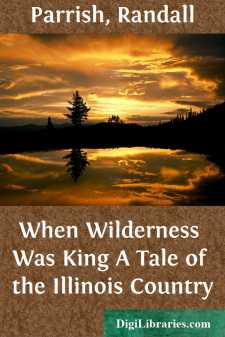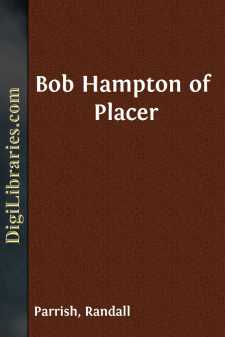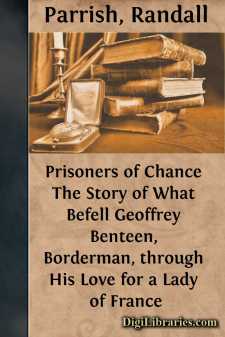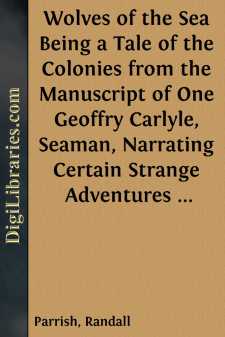Categories
- Antiques & Collectibles 13
- Architecture 36
- Art 48
- Bibles 22
- Biography & Autobiography 813
- Body, Mind & Spirit 142
- Business & Economics 28
- Children's Books 17
- Children's Fiction 14
- Computers 4
- Cooking 94
- Crafts & Hobbies 4
- Drama 346
- Education 46
- Family & Relationships 57
- Fiction 11829
- Games 19
- Gardening 17
- Health & Fitness 34
- History 1377
- House & Home 1
- Humor 147
- Juvenile Fiction 1873
- Juvenile Nonfiction 202
- Language Arts & Disciplines 88
- Law 16
- Literary Collections 686
- Literary Criticism 179
- Mathematics 13
- Medical 41
- Music 40
- Nature 179
- Non-Classifiable 1768
- Performing Arts 7
- Periodicals 1453
- Philosophy 64
- Photography 2
- Poetry 896
- Political Science 203
- Psychology 42
- Reference 154
- Religion 513
- Science 126
- Self-Help 84
- Social Science 81
- Sports & Recreation 34
- Study Aids 3
- Technology & Engineering 59
- Transportation 23
- Travel 463
- True Crime 29
Love under Fire
by: Randall Parrish
Description:
Excerpt
CHAPTER I
BETWEEN THE LINES
I had drifted slowly across the river, clinging with one arm thrown over a log, expecting each moment the musket of some startled picket would spit red through the dark, and scarcely daring to guide my unwieldy support by the slightest movement of hand in the water. The splash of motion might mean death in an instant, for keen eyes, sharpened by long night vigils, were on the stream, and those who had ventured the deed before me had failed utterly. Yet the southern bank remained silent, so black I could scarcely discern its vaguest outlines, while, by good fortune, the sweep of the current served me almost as well as a pair of oars. Thus, trusting to luck, and without exerting a muscle, I finally came to a full stop on a narrow spit of sand, so far out in the stream I could scarcely touch bottom, until the sweep of the current drifted my log inward, and thus left me flat on the wet sand facing the bank, the wood-covered crest, as revealed dimly against the slightly lighter sky, appearing almost to overhang the water.
This shadow served me well, yet did not invite to recklessness. There were surely pickets posted along here, because the gleam of camp-fires had been plainly visible during the early evening from the bluffs opposite, but there was nothing observable from where I lay, my head cautiously uplifted, peering across the log. It was several minutes before I even ventured to creep up the sand-spit into the denser blackness of the over-hanging bank, but, once there safely, I discovered the drift had landed me at the mouth of a narrow gully, apparently a mere crevice in the rocky shore-line. It was the occasional downpour of water after rain which had caused the accumulation of debris on which my log had grounded. At times the dry gulch would hold a roaring torrent, although now it was no more than a gash in the bank.
I was not altogether certain within half a mile of where I was, but this made small difference, so far as my present purpose was concerned. The lines of the enemy were extended from the upper ford east as far as Sailor Springs, and I was certainly well within those limits, probably somewhat to the right of the centre. However, that was a minor detail, as it made little difference where I succeeded in penetrating the cordon of pickets, so long as I returned with the information sought. If I had, through mere chance, discovered a weak spot, then God was good.
My heart beat rapidly as I stared blindly up into the black recess of that narrow defile, listening intently for the slightest unusual sound which would indicate the near presence of anything human. It was caution, not fear, however, which caused me to breathe quickly--my sole, overpowering dread being that I might have to return, and face Sheridan with a report of failure. I preferred anything rather than that. I thought of his stern eyes as he looked me over in the late sunlight of the evening before; the sharp rasp in his voice, as he said, "Geer, this is no boy's work," and the quiet, confident reply of my captain, "Galesworth will do it for you, General, if any one can." The memory of that scene seemed to stiffen my nerves; I had to make good here in the dark, alone, and so, on hands and knees, I began creeping slowly up underneath the tangle of bushes. The path was steep and stony, so densely overhung with branches as to appear like a tunnel. There were loose stones which I had to guard against dislodging, and the drier leaves rustled as I pressed them, aside. This endeavor to avoid noise made progress slow.
I must have been fully ten minutes, thus endeavoring to break through, seeing and hearing nothing alarming, yet constantly feeling an odd premonition of danger, when I finally attained the top of the bank, perhaps twenty feet back from the river, and looked out through a slight fringe of bushes. The first thing noticeable was the dull red glow of a fire, nearly extinguished, some few yards in advance. The little gleam of light thrown out as the wind stirred the smouldering embers served to reveal the dirty flap of a tent set up at the edge of a grove of saplings, and a horse, standing with lowered head, sharply outlined against the canvas. I could even perceive the deep-seated cavalry saddle, and catch the shine of accoutrements. All these details came to me in a sudden flash of observation, for, almost simultaneously with my rising above the edge of the bank, my ears distinguished voices conversing, and so closely at hand as to almost unnerve me. I gripped a root between my fingers to keep from falling, and held on motionless, striving to locate the speakers. They were to my left, scarcely four yards distant, yet so dimly revealed against the background of leaves I could tell nothing of their rank--merely that one was short, and heavily built, while the other, a much taller, and seemingly more nervous man, was wrapped in a long cavalry cape. It was his voice speaking, a rather peculiar voice, as though he possessed some slight impediment of speech.
"Do not look at it in that way, General," he protested earnestly. "I am not opposing your plan, but merely urging the extreme peril of the undertaking--"
"Human life cannot be considered at such a time, Hardy," broke in the other warmly. "The cause for which we battle, the duty confronting us, outweighs all else. A life may be sacrificed, but that single life may save thousands."
"True; very true. I am sufficiently a soldier to realize that. Yet what you propose seems an impossibility. Two aides have endeavored this service already, and failed, their lives forfeited. Others stand ready to go the moment the word is spoken, but what possibility is there of success, that any volunteer could get through alive?"
"Practically none," admitted the other, his deep voice more grave. "There is only one in whom I feel the slightest hope, Hardy; that is why I have sent for you. I naturally hesitate to say so, but I believe the moment has now come which demands this sacrifice. You recall the offer of service made us last night, Major?"
The man addressed took a single step backward, one hand flung up, as though warding off a blow.
"You--" he stammered, "can you mean Billie?"
"Yes; the South can have no more urgent need than now. These despatches must reach Beauregard, and I must have the report from Carroll. If the latter is not already in Beauregard's possession, then it must be sought even in the enemy's camp. Every hour of delay adds to our danger. If Carroll is dead I must know it; if he has gained the information he was sent after, then I must have it. I can stand this waiting no longer--there is too much at stake. As you say two men have already fallen endeavoring to pierce the lines, and I doubt if there is a soldier in my command who could succeed. Billie might have a chance, and I know no one else who would--do you? I sent for you to gain your consent, and I ask it, Major, in the name of the South."
The taller man remained silent, his hands clasped, and head sunk on his breast. Finally he glanced up into the face of the other, with shoulders thrown back.
"No Hardy ever yet failed in duty," he said sternly, "nor will one now. Where are the papers?"
"In my tent, but the bearer will be safer not to come here for them. Even my orderly may be a spy. An aide shall deliver them at Three Corners in an hour--will that be too early?"
"No; which aide? There should be no mistake."
"There will be none. I will send Lieutenant West, and he shall act as escort as far as the outer pickets; beyond that--"
"Wit and good luck, of course. What is the word?"
"'Cumberland'; now listen, and repeat exactly what I say to Billie." His voice fell into lower, more confidential tones, and, listen as I would, I could catch only now and then a word, or detached sentence. "The upper road"; "yes, the wide detour"; "coming in by the rear will be safer"; "that isn't a bad story"; "he's a tartar to lie too"; "just the thing, Major, just the thing"; then, "But that's enough for the outlines; details must take care of themselves. Let's waste no more time; there are only four more hours of darkness."
The two men separated hurriedly with a warm hand-clasp, the stocky general entering the tent, and brusquely addressing some one within, while the major swung into the saddle of the waiting horse, and driving in the spurs rode swiftly away, instantly disappearing.
There was no doubt as to my own duty. By the merest accident I had already become possessed of most important information. What it was all about was still only guess-work, yet it was evidently enough a most serious matter. I could better serve the cause of the Union by intercepting these despatches, and running down this spy, than by carrying out Sheridan's original instructions. And it seemed to me I could do it; that I already knew a way in which this might be accomplished. Our army had held all this ground only a few months before, and I recalled clearly to mind the exact spot where the aide was to meet the despatch-bearer. The "Three Corners"; surely that must be where the roads met at the creek ford, with the log meeting house perched on the hill above. It would be to the west of where I was, and not more than two miles distant.
I was cool-headed, and accustomed to this species of adventure, or I should never have been there. Yet, I confess my nerves tingled as I crept cautiously forward through the fringe of bushes, seeking the exact spot where the major had disappeared down what must have been some species of road. There were sentinels posted about the tent; I saw the silhouette of one, and heard several voices conversing gruffly as I slunk past, yet could not definitely locate these last in the gloom. There was a little row of tents--three or four--back of the larger one occupied by the general; but these were unlighted and silent. I crept past them unobserved, emerging into a more open space, where my groping hands encountered wheel-tracks, and the beaten earth of a road.
This apparently ran nearly east and west, as I recalled direction, and I turned to the right, bending low in the shadows, and advancing at a crouching run. Seemingly there was nothing to obstruct progress. The noise of stomping and restless horses reached me from the left, evidence of a nearby cavalry or artillery camp; yet I saw no one, perceived no light even, until after advancing at least a quarter of a mile. Then a sudden slight turn in the road brought me upon a rude shack, showing a blacksmith's fire glowing within, and the smith himself pounding busily away at an anvil. The gleam of the forge shot out redly across the road. As I crept closer I could perceive the figures of others lounging about inside--soldiers, no doubt, although I could not be certain. There was a ragged Confederate cavalry jacket hanging over a rain-barrel just outside the window, and, getting hold of it, I slipped it on over my woollen shirt. The night air was chill, my clothes still damp from the river, and besides it might help later on. As I did this a rider came flying up the road, bending low over his pommel. He went past at a slashing gallop, his face showing an instant in the red glare of the flame. That, no doubt, would be the aide with the despatches, yet, in spite of his haste, he would have to wait to the end of the hour for Billie. One or two of the men came lazily to the front of the shop to watch him go by, and I crouched down behind the rain-barrel until they went back again. Then I skirted the bar of flame, and ran on down the road, a bit recklessly, fearing the horseman might get too far ahead.
It was intensely dark, one of those dense nights when the blackness appears to press down upon one, and there were noises on either side to make me aware that I was in the midst of a great encampment. Fires shone dimly through the trees, and I could hear voices and hammering. I supposed the road I was travelling ran directly through the main camp, with troops on either side, and, for that reason, was not patrolled by pickets. Anyhow I passed without challenge, although I met a few fellows slinking along about as I was--soldiers out of bounds most likely, as afraid of me as I was of them....


